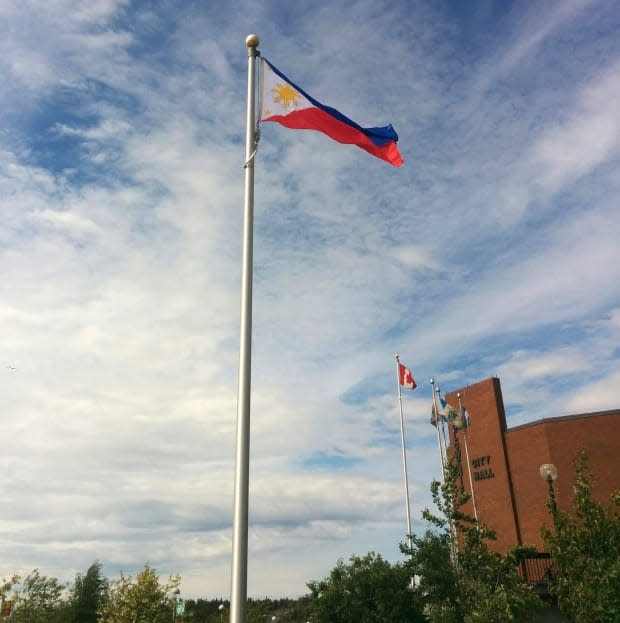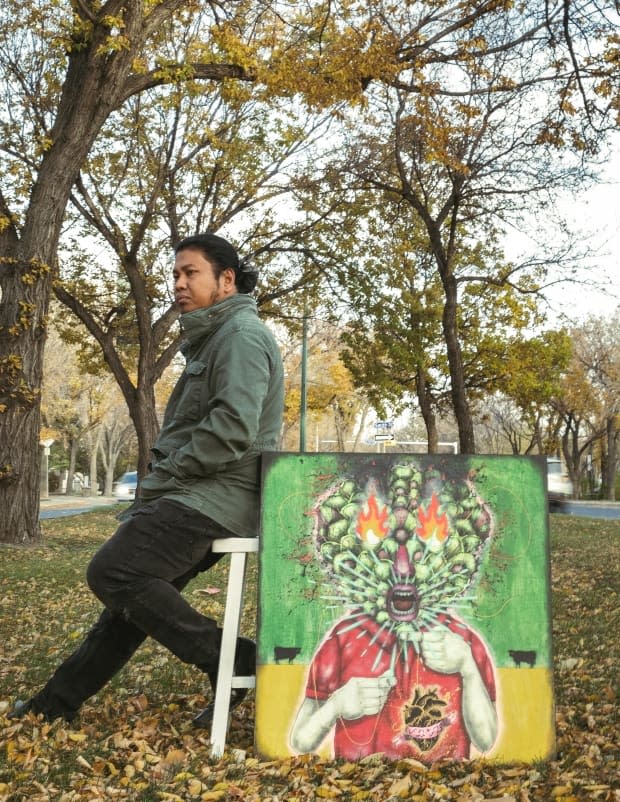Sask. Filipino community members highlight culture, language as numbers continue to grow

Saskatchewan's Filipino community has more than doubled in the past decade and this week both Regina and Saskatoon city halls were flying the flag of the Philippines for Filipino Canadian Heritage Month.
In 2011 there were about 16,705 Filipino people in the province. In 2016, it jumped to 32,340. Tagalog was being spoken by 25,955 speakers in 2016, twice as many people as in 2011.
Danny Balliad is one of many people working tirelessly to promote and teach Filipino culture. Balliad landed in Toronto in 2006 and moved to Saskatchewan in 2008 after being hired by an engineering company in Saskatoon.
In his spare time, he works with a group of Filipino-Canadians to create four different independently produced TV shows for Shaw Spotlight, OMNI TV and Filipino TV. He said he saw the need for Filipino culture, Tagalog and Asian culture on TV after coming to Saskatoon.
"It's about passion and our love for the community," Balliad said. "We want our cultural aspects to be brought into the Canadian society."
Balliad said he hopes having the language on TV helps those who were born in Canada but want to connect to their history. He said there are also English subtitles option for youth who didn't grow up learning Tagalog.
Similarly, a Regina artist hopes to connect people to their culture through art. Patrick Fernandez is a visual artist who moved to Regina from the Philippines in 2017. Fernandez is on the board of directors of the Art Gallery of Regina and is a gallery director for the Woods Art Space.
Fernandez is influenced by his personal experiences and combines them with Philippine narratives.
"I want to create a story and nostalgia for my fellow Filipinos here so that we would have something like a discussion point of discussion with the art that I make."
Fernandez is now raising a family in Regina and said connecting his daughter to her culture is very important. She can currently understand both English and Tagalog.
"One thing that I'm proud of, of the Filipino culture is that we really have very strong family ties," he said. "They have this sense of gratitude for the elders and the community as a whole. That's one thing that I want her to maintain."

Pepito Escanlar hopes to keep people connected as well. Escanlar is the president of the Philippine Association of Saskatchewan. He arrived in Saskatchewan in the 1970s when there were about 100 Filipinos scattered throughout Saskatchewan.
"When the Filipino community was really small … they decided to gather together for Christmas because they felt lonely and they wanted to meet other Filipinos. And that's how the Philippine Association started," he said.
It's changed drastically over the past 40 years, he said. Now through the association he hopes to help other families connect to their culture with online and in-person events.
Connecting children to their culture can be difficult, said Rosalee Apostol, co-president of the Filipino Canadian Association of Saskatchewan, which runs the Filipino Heritage School.
"From my personal experience, of course, my children, when they came here in the elementary grades, they're exposed to the Canadian language, the Canadian way of life, the tendency to forget our own Philippine culture, Philippine language," Apostol said.
That's why the association tries to maintain the culture and tradition through dance, events and the Filipino Heritage School.
"We encourage them in our other cultural activities as much as possible. But really, the challenge continues."

 Yahoo Finance
Yahoo Finance 